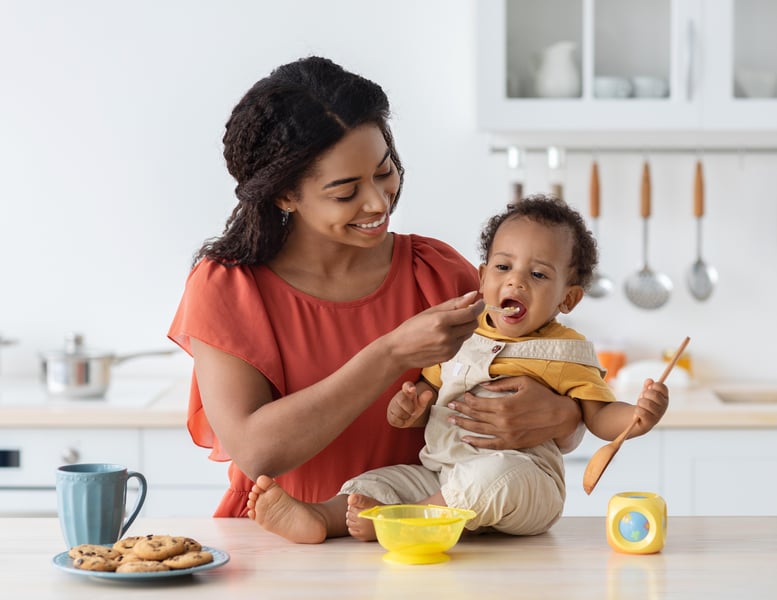Get Healthy!

- Posted February 8, 2023
How Are Toxins Like Lead, Arsenic Getting Into Baby Foods?
Parents in the United States may assume baby food is free of impurities, but a recent research review highlights the much different reality: Most foods made for babies and toddlers have some amount of toxic heavy metals.
The contaminants include metals, such as lead and arsenic, that can harm brain development, and contribute to learning and behavior problems in children. And they are found in everything from rice cereals to formula to pureed vegetables.
It's an issue that's been known for decades, yet most parents are probably unaware of it, experts said.
"Most people would probably think that, out of all foods, baby food has to be the safest," said Dr. Sarah Ventre, the lead author on the review and a pediatrician at the University at Buffalo, in New York.
But lead, arsenic and other toxic metals exist in the soil and groundwater, finding their way into the food supply, including the products that ultimately end up in baby food.
A 2019 study found heavy metals in 95% of baby foods tested. One-quarter contained traces of all four metals researchers assessed: arsenic, cadmium, lead and mercury.
That study was commissioned by the nonprofit Healthy Babies Bright Futures (HBBF), and included in the new review.
Jane Houlihan, research director at HBBF, agreed that the facts surprise parents, who may assume baby food is tightly regulated.
"But until now, the Food and Drug Administration really hasn't tackled contaminants in food," Houlihan said.
"Until now" refers to recent steps taken by the FDA. In 2019, the agency announced a plan, dubbed Closer to Zero, to lower toxic metals in baby food. Last year, the FDA issued "draft guidance" for industry on allowable levels of lead in fruit juices. And just last month, new limits were proposed for lead in certain -- but not all -- baby and toddler foods.
But those proposals are "not good enough," Houlihan said.
Based on the 2019 HBBF analysis, only a small number of baby food products currently exceed the new proposed limits. So most products on the market would not be affected.
"We want them to continue to tighten the limit," Houlihan said, as there is no known "safe" level of lead exposure for children.
"When you're talking about food," she noted, "that means every meal, every day, they can be exposed to these metals."
Even though heavy metals are ubiquitous, it is possible for growers to reduce their presence in food, Houlihan said.
One example is arsenic found in rice. Rice, Houlihan said, has a particular tendency to absorb arsenic, and infant rice cereals have higher arsenic levels than baby cereals made from other grains.
But it is possible for rice growers to use lower-arsenic cultivation methods, Houlihan said -- something that is already happening due to demands for such products.
However, both she and Ventre said, change is coming slowly. The FDA plan on baby and toddler food is a years-long process that will address one heavy metal at a time.
In the meantime, parents can take steps on their own. Given the high amount of arsenic in rice, Houlihan suggested choosing other grain cereals and snacks.
But even more important, she and Ventre said, is to vary what babies and toddlers eat. That helps minimize exposure to any metals that are relatively high in any one food. And it's also a more nutritious diet, Ventre pointed out.
Along with rice, certain other foods tend to be higher in metals -- such as sweet potatoes and carrots.
"But they also pack a nutritional punch," Houlihan said. So instead of banning those root vegetables, parents can include them in a broad mix of veggies.
"Keep them in the diet, but not every day," Houlihan said.
Parents should also pay attention to tap water, Ventre said, as it can be high in lead. That can include finding out what the lead levels are in your local public water supply, having your home water supply tested for lead, and using filters designed to reduce lead in water.
For parents wondering if homemade baby food would be safer, the answer is, unfortunately, no. Houlihan said that another analysis by HBBF found no evidence to suggest homemade options would protect babies from toxic metals: It's the food type that matters, not who makes it.
The research review was published in a recent issue of the journal Current Problems in Pediatric and Adolescent Health Care.
More information
Healthy Babies Bright Futures has more on contaminants in baby food.
SOURCES: Sarah Ventre, MD, MPH, clinical assistant professor, Jacobs School of Medicine and Biomedical Sciences, University at Buffalo, Buffalo, N.Y.; Jane Houlihan, MSCE, research director, Healthy Babies Bright Futures; Current Problems in Pediatric and Adolescent Health Care, October 2022





